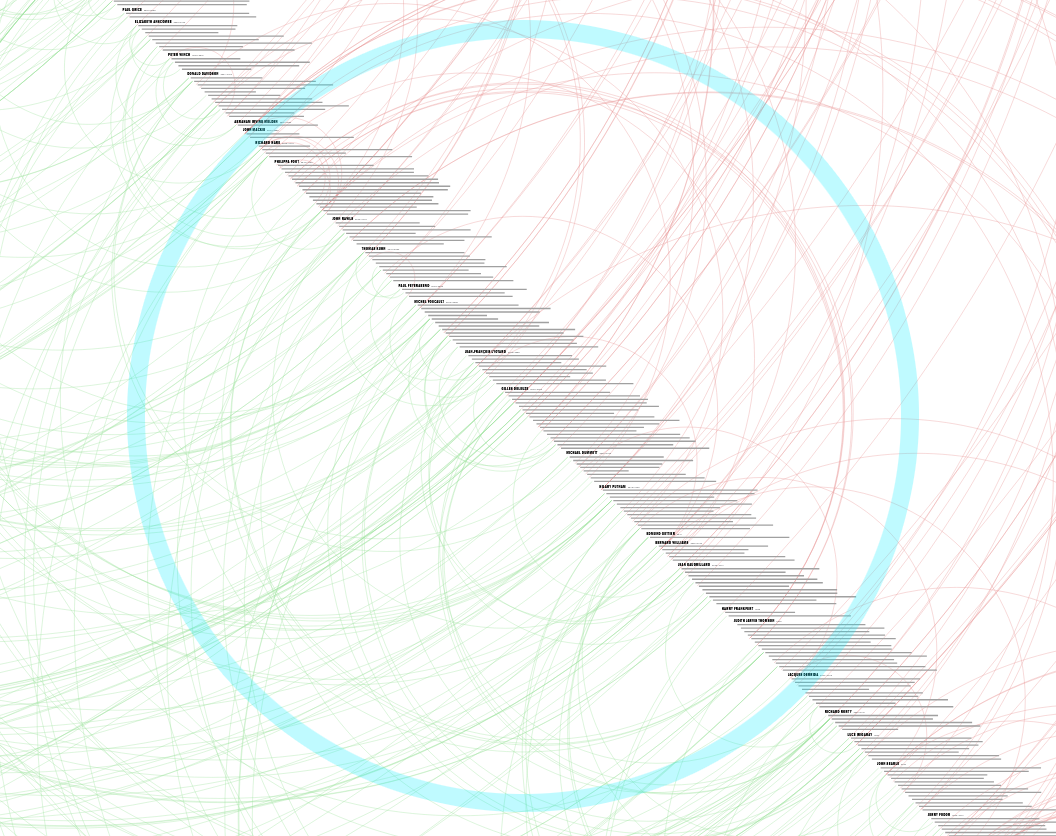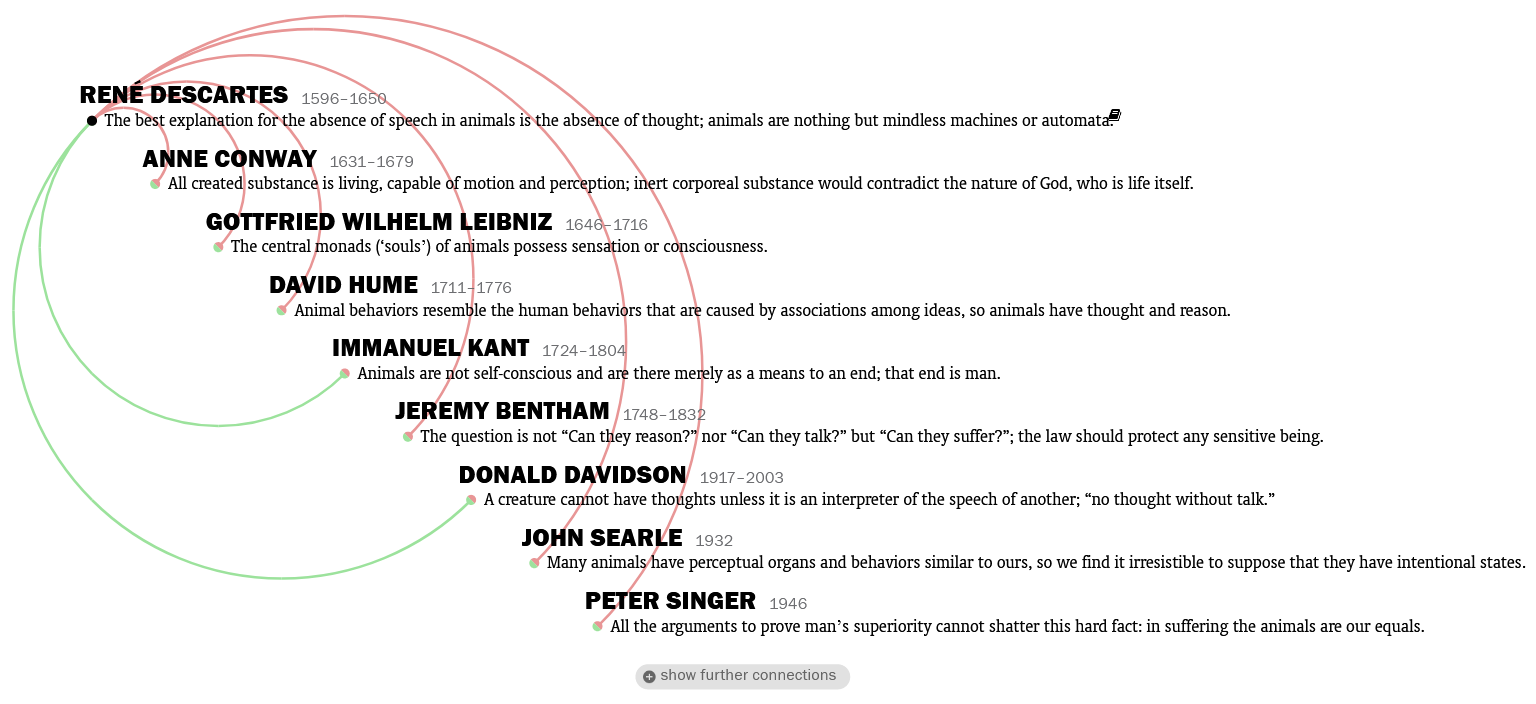Protagoras, Tarski, Thomson, Churchlands, Clark Added; Plato, Descartes, Lewis, and Others Updated
Here is what I’ve done since the last update:
- Protagoras, Alfred Tarski, Judith Jarvis Thomson, Paul & Patricia Churchland, and Andy Clark are added.
- Sentences are added/edited for Plato (4), René Descartes (2), David Hume, Gottlob Frege, Wilfred Sellars, Donald Davidson, John Searle, Thomas Nagel, Saul Kripke, David Lewis (2), Daniel Dennett, David Chalmers.
- Dozens of new connections are drawn.

I admit I was a bit scared of Tarski, but after I refreshed my knowledge of him by consulting secondary sources, I tried my luck with his “The Semantic Conception of Truth: and the Foundations of Semantics” (1944) – and what a joy it was. His writing is much clearer than I expected it to be (he writes in the beginning that this is an informal summary of his theory) and I now have a better understanding of his semantic theory of truth and his general stance on the subject of truth.

For Thomson, I studied three of her influential papers “A Defense of Abortion” (1971), “Killing, Letting Die, and the Trolley Problem” (1976) and “The Statue and the Clay” (1998); and made sure I covered some of her other ideas by using secondary literature. It was nice to see that she has her half-red half-green full-circle with Philippa Foot – a philosopher who influenced her but whom she disagrees with on some issues. (There are many other full-circle couples like that in the visualization – I may write a post about this.)

I wasn’t sure whether to put Churchlands in separately or together as a unit. I had my answer when I read in their The New Yorker profile that Paul sometimes thinks of Pat and himself as two hemispheres of the same brain:
“To what extent has Pat shaped my conceptual framework and hence my perceptions of the world, and to what extent have I done that for her? I think the answer is, an enormous extent. But I don’t know how to unwind it.”
If they don’t know how to unwind it, who am I to do it? (I’ve recently bought Patricia’s latest book; I’ll be adding ideas from there too.)
I read Plato’s Phaedo and made some adjustments/additions based on that.
A unique situation arised when I had to use the same sentence for Clark and Chalmers since it was from their joint paper.
Finally, I spent some time to enrich the threads on issues around animal minds. I was delighted to see how Descartes came close to Dennett’s idea of free-floating rationales.


Right now I’m reading Mackie’s Ethics and updating him in the process. After that, I plan on doing some work on aesthetics which has been a rather underrepresented domain in my summary.
Subscribe to Updates
Follow & Support
RECENT UPDATES
- New Force-Directed Graph with Philosophers as Nodes
- Zeno of Citium, Epictetus, Marcus Aurelius, Skinner, Plantinga, Block, Strawson, and Oppy Added; Hume, Rousseau, Brentano, Husserl, Wittgenstein, and Others Updated
- Poincaré, Eddington, Gombrich, Laudan, Van Fraassen, Worrall, Ladyman Added; Anselm, Duhem, Grice, Williams, Kripke, Lewis, Boyd, and Others Updated
- ‘Basics’ Filter for the Uninitiated
- Reid, Barthes, Habermas, Varela Added; Leibniz, Kant, Ramsey, Sartre, Beauvoir, Foot, Clark, and Others Updated
- Dynamic URLs
